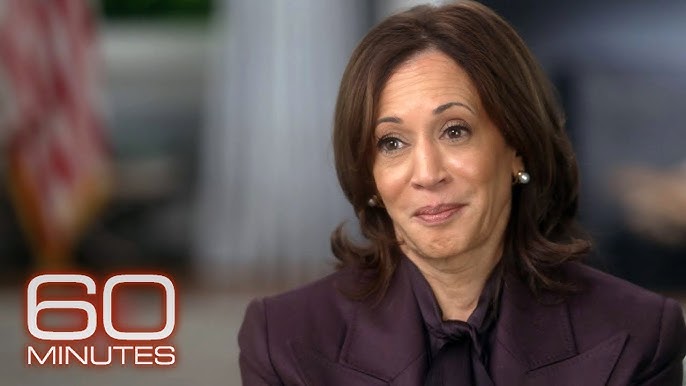Recent reports indicate that CBS News has received a formal Letter of Inquiry from the Federal Communications Commission (FCC), pressing for the raw footage and transcript of their interview with Kamala Harris, the former Vice President. Having no choice but to comply under the law, CBS News confirmed this in a statement. This request has come during a period when the FCC is examining the impending merger between Paramount Global and Skydance Media.
Steering this pursuit from the FCC is Brendan Carr, an appointee of former President Trump. Notoriously known for his antics to revoke the licences of any broadcasting stations that have attracted Trump’s scorn, Carr harps on the agency’s mandate to ensure the ‘public interest’ is being upheld by public airwaves.
The FCC’s demand seems to originate from the chatter circulating about CBS’s consideration to resolve an ongoing dispute in court with President Trump. The legal battle concerns an interview conducted on ’60 Minutes’ featuring Kamala Harris, the former Vice President.
The lawsuit, valued at $10 billion, alleges CBS News of corrupting the interview’s output to incline the electoral favor towards Harris. The area of dispute chiefly revolves around an elongated segment of her reply to a question about the volatile situation in the Middle East. This, as per Trump, went above the line of defamation, trespassing the boundaries of Texas’ consumer protection law regarding misleading advertisement practices.
However, FCC Commissioner Anna M. Gomez has openly disagreed with this approach, suggesting a political angle to the move. Moreover, it should be noted that this complaint had already been dismissed by the agency prior to its resurrection.
Evidently, the FCC seems to have deviated from its principal responsibilities over the past fortnight, displaying an unsettling inclination towards executing the Administration’s agenda. Long-established norms are being flouted, and the directive given by Congress to the FCC, that of acting as an independent entity, is seemingly being neglected.
It unveils a strategy spearheaded by the government to penalize broadcasters that do not align with their sentiment. Clearly, this course of action is framed to instill fear in television stations, with the intention to manipulate their editorial decisions.
Brought back to life, this complaint had previously been discarded by the FCC’s experts due to inadequate proof and because it fell notably short of meeting the stringent standards required for the agency’s action. Without evidence to back their claim, this insistence by the FCC highlights a concerning active involvement of the government in controlling the narrative.
In essence, this entire issue sheds light on a potentially motivated act by the FCC on behalf of the Administration. This scenario does not bode well for the objective functioning of the broadcast space, where independence and immunity from administration influence is paramount.
Simply put, it solidifies the perspective that CBS News, among other broadcasters, is being pitted against the government. The explicit demand from FCC can be perceived as an attempt to use lawful pressure to influence the narrative to their advantage.
Despite this peculiar harassment, it raises the question of how broadcasters will tread through these testing times. Will they give in to such unsubstantiated requests, or will they hold their ground and fight for their right for autonomy?
Their response could potentially shape the future direction of the broadcast industry as a whole. It’s a crucial point in time, where precedence can either support editorial independence or amplify governmental influence on the free press.
It is desirable for the broadcast industry and the FCC to reach a better understanding of each other’s roles and responsibilities. That would be a step towards ensuring a more balanced and fair media representation, without any undue influence from the administration or the broadcasters themselves.

